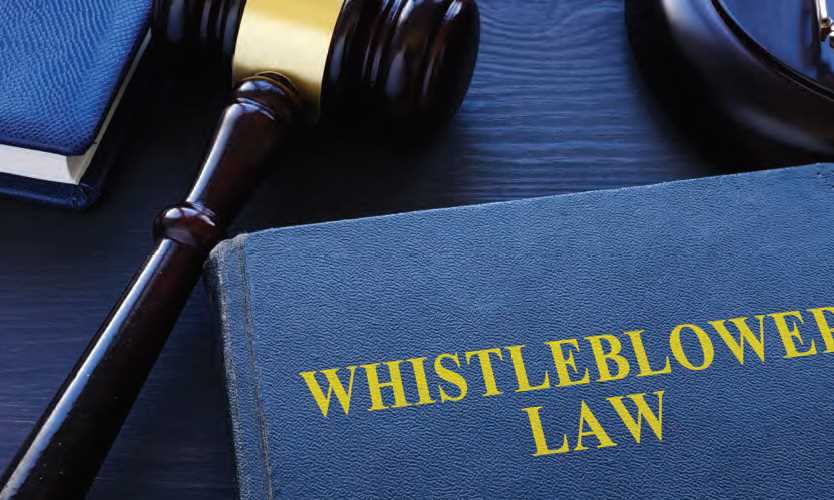Safety whistleblower rules under fire
- January 1, 2024
- Posted by: Web workers
- Category: Workers Comp

Worker protections under the Occupational Safety and Health Act recently have been sharply debated in federal agency meetings and in Congress and challenged in court as stakeholders volley over whether protections are sufficient and if workers have enough time to lodge complaints about unsafe workplaces.
In recent months, the U.S. Occupational Safety and Health Administration has held several forums seeking input on the agency’s whistleblower protections under Section 11(c), which prohibits employers from retaliating against workers for engaging in protected activity such as filing a safety or health complaint with OSHA, raising a safety or health concern with their employer or reporting an injury or illness.
An OSHA spokesperson said about 100 members of the public provided “relevant, useful information related to the program” at the meetings.
Employees have 30 days from an alleged adverse employment action to file a complaint with OSHA, but that could change if legislation in the U.S. House of Representatives is adopted by Congress and signed by the president. Bipartisan bill H.R. 1074, introduced in February by Rep. Joe Courtney, D-Conn., would amend the OSH Act to expand federal OSHA coverage to public sector workers and extend the statute of limitations for employees reporting safety and health violations to OSHA from 30 days to 180 days.
The bill, known as the Protecting America’s Workers Act, or PAW Act, also would require immediate abatement of hazards by employers even if they contest hazards, expand OSHA’s authority under the general duty clause, increase penalties for OSHA violations and restore Obama-era electronic record-keeping requirements.
Jason Mills, partner in the Los Angeles office of Morgan, Lewis & Bockius LLP, said it is unlikely that there will be a big rewrite on 11(c) but changing the statute of limitations via the PAW Act is “opening up the floodgates” to retaliatory charges. About two-thirds of whistleblower complaints were dismissed or withdrawn in 2018, according to OSHA statistics.
“Someone knows if they believe they were retaliated against for making an OSHA complaint,” said Mr. Mills. “Turning that 30 into 180 days doesn’t accomplish anything. It strikes me as opportunistic.”
However, extending the statute of limitations from 30 to 180 days will align OSHA with other agencies’ whistleblower statutes, said Rixio Medina, president of the American Society of Safety Professionals.
Employees often aren’t aware that they have the right to report a safety or health violation, “much less are able to take advantage of it in 30 days” and overcome their fear of reporting, said Marcy Goldstein-Gelb, co-executive director of the National Council for Occupational Safety and Health, based in Somerville, Massachusetts, which represents labor unions and worker advocates.
“If workers can’t report a hazard or can’t report an injury, what that means is … they are at grave risk at getting much more severely injured, and the entire workplace is still going to be exposed to that hazard,” she said.
Aaron Gelb of Conn Maciel Carey LLP in Chicago said while he believes OSHA is continuing to be an enforcement-focused agency, he doesn’t envision any significant changes to current whistleblower statutes.
The legality of the antiretaliation provisions in OSHA’s electronic record-keeping rule are also being contested. The National Association of Home Builders filed an amended complaint on April 1 in U.S. District Court for the Western District of Oklahoma challenging OSHA’s antiretaliation provisions.
The association filed its initial lawsuit, National Association of Home Builders of the U.S. et al. v. Acosta, in 2017, and the government moved to stay proceedings until OSHA had a chance to reconsider the rule. In its amended complaint, the Washington-based association, along with the U.S. Chamber of Commerce and several other business associations, challenge OSHA’s August 2016 provisions prohibiting employers from retaliating against employees for reporting work-related injuries or illnesses.
Although the agency issued a memorandum to clarify the antiretaliation provisions of the electronic record-keeping rule in October 2018, according to the NAHB lawsuit, OSHA failed to establish what constitutes “reasonable” procedures for reporting work-related injuries and does not retain the statutory authority to redress allegations of discrimination and retaliation against employees for reporting work-related injuries or illnesses beyond Section 11(c).
OSHA’s Improve Tracking of Workplace Injuries and Illnesses regulation was a source of consternation for employers and their representatives in large part because of the antiretaliation provisions featured in the rule’s preamble.
The provisions discouraged employers from any activities that might deter employees from reporting injuries and illnesses, including incentives offering prizes such as pizza parties for a certain period of time without a workplace injury or illness. But in late May, the Trump administration proposed enshrining OSHA’s stance that the rule does not prohibit employers from establishing safety incentive programs or post-incident drug testing in a new standard.
Alan Larson, owner of safety consulting firm Alan Larson & Associates in Yuma City, California, said he believes there is a “tremendous” amount of underreporting of workplace injuries and illnesses nationally, and is skeptical of such incentive programs.
“If you start tying your OSHA recordables … and workers comp costs to incentives, you get very perverse outcomes,” said Mr. Larson. “You basically incentivize people to cook their books.”



